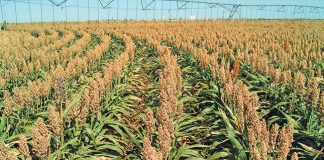SA Sugar Association (SASA) executive director Trix Trikam said that approximately 40 000ha of currently fallow and greenfields sugarcane land would be required to assist government in meeting its minimum target of 2% bio-ethanol blending into petrol.
“Government is currently investigating potential subsidies for sugarcane and sorghum to be used for bio-ethanol production,” said Trikam. “It will be up to potential bio-ethanol producers, like the sugar milling companies, to decide if these subsidies are enough to justify investing in the infrastructure required for bio-ethanol production.”
The SA sugar industry believes that bio-ethanol from sugarcane could provide a significant profitability boost to an industry that has been struggling in recent years against low world sugar prices and large imports of cheap sugar.
Dr Marilyn Govender, SASA’s natural resource manager, said that about 12t of sugarcane was required to produce about 1m³ of bio-ethanol. She added that diverting part of SA’s sugarcane crop into bio-ethanol production would not compromise the country’s food security. Numerous new jobs would also be created within the sugarcane-to-bio-ethanol value chain.
“The SA sugar industry has made regulatory submissions to the department of energy, but the contents of these submissions have not been made public yet,” said Govender.
Thandeka Ellenson, SASA’s land reform support manager, pointed out that the currently largely under-utilised arable lands in communal areas in KwaZulu-Natal and Mpumalanga provided great potential for meeting the country’s food security and renewable energy needs.












